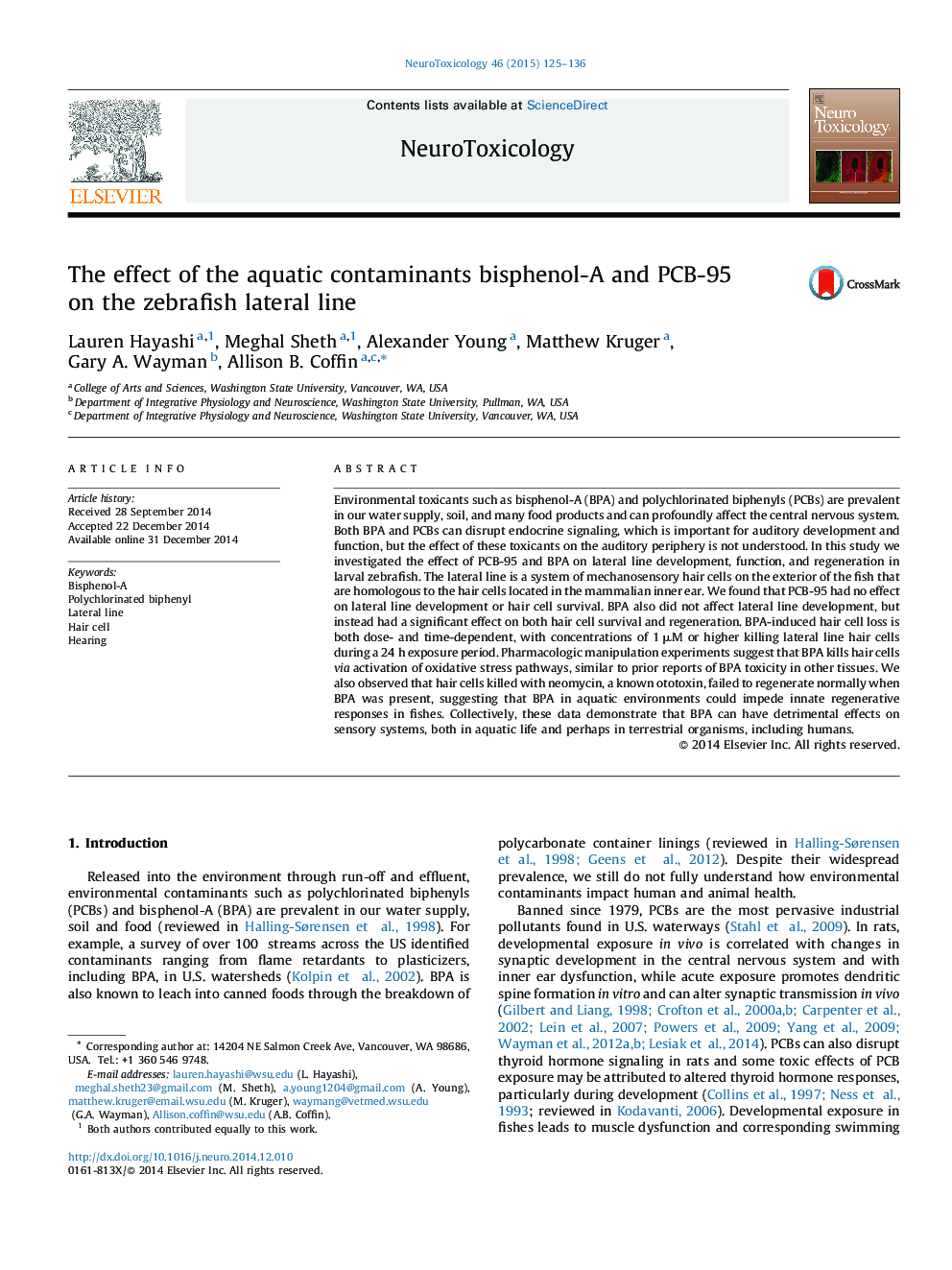| Article ID | Journal | Published Year | Pages | File Type |
|---|---|---|---|---|
| 2589609 | NeuroToxicology | 2015 | 12 Pages |
•Bisphenol-A (BPA) is toxic to sensory hair cells in the zebrafish lateral line.•BPA likely damages hair cells by inducing oxidative stress.•BPA attenuates hair cell regeneration in this innately regenerative system.•PCB-95 was not toxic to developing or mature lateral line hair cells.
Environmental toxicants such as bisphenol-A (BPA) and polychlorinated biphenyls (PCBs) are prevalent in our water supply, soil, and many food products and can profoundly affect the central nervous system. Both BPA and PCBs can disrupt endocrine signaling, which is important for auditory development and function, but the effect of these toxicants on the auditory periphery is not understood. In this study we investigated the effect of PCB-95 and BPA on lateral line development, function, and regeneration in larval zebrafish. The lateral line is a system of mechanosensory hair cells on the exterior of the fish that are homologous to the hair cells located in the mammalian inner ear. We found that PCB-95 had no effect on lateral line development or hair cell survival. BPA also did not affect lateral line development, but instead had a significant effect on both hair cell survival and regeneration. BPA-induced hair cell loss is both dose- and time-dependent, with concentrations of 1 μM or higher killing lateral line hair cells during a 24 h exposure period. Pharmacologic manipulation experiments suggest that BPA kills hair cells via activation of oxidative stress pathways, similar to prior reports of BPA toxicity in other tissues. We also observed that hair cells killed with neomycin, a known ototoxin, failed to regenerate normally when BPA was present, suggesting that BPA in aquatic environments could impede innate regenerative responses in fishes. Collectively, these data demonstrate that BPA can have detrimental effects on sensory systems, both in aquatic life and perhaps in terrestrial organisms, including humans.
